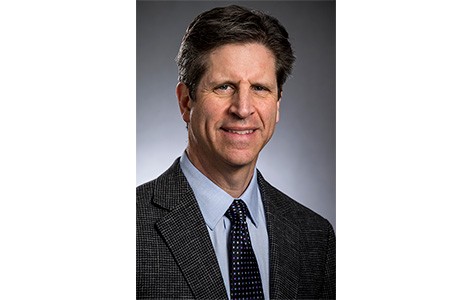True North: An Atlantic Health System Program Specifically to Help Veterans
PTSD, or post-traumatic stress disorder, is a mental-health condition impacting an estimated 8 million people every year in this country. It can affect anyone who has experienced a trauma such as a serious accident, domestic or sexual abuse, natural disaster or combat situation--and military veterans are especially likely to have it. Unfortunately, the majority of people with PTSD do not get help for the condition, either because they don’t recognize that they have it, are ashamed to seek help or simply don’t know how to get started.
How do you know if you have PTSD?
According to Thomas Zaubler, MD, Chair of the Department of Psychiatry at Atlantic Health System’s Morristown Medical Center, symptoms include reliving the trauma while experiencing tremors, sweating, a fast heart rate and nightmares. “These are really terrifying feelings that can make sufferers feel as if they’re going through the event all over again,” Zaubler said. A person may consciously avoid triggers such as certain people, places and circumstances. He or she may have new feelings such as fear, shame and guilt, and may find a loss of interest in activities that used to be pleasurable. Finally, PTSD sufferers may experience “hyperarousal,” or exist in an anxious, tense state marked by irritability, angry outbursts and trouble concentrating.
PTSD sufferers may also find themselves saddled with sleep disturbances, either as a result of their anguished mental state or because changes in the nervous system may affect breathing and lead to sleep apnea.
Why can’t people just get over a trauma?
While many people do feel better in the weeks after experiencing a traumatic event, not everybody does, said Dr. Zaubler. And referring to PTSD in joking terms, as some people do, does a disservice to those who are dealing with it.
“It’s a real phenomenon where essentially because of the trauma, the brain is hijacked,” he said. “Neurons in the brain start firing, which recreates all the negative experiences. It can be a very debilitating illness.”
How do I get help or find help for a loved one with PTSD?
“There are really outstanding treatments for PTSD, mostly focusing on psychotherapy,” said Dr. Zaubler. The website sponsored by the U.S. Department of Veterans Affairs, The National Center for PTSD, and your primary-care physician can be great resources for helping you find a therapist who is well versed in trauma-informed therapy. Depending on the circumstances, there may be a role for antidepressant or anti-anxiety medications.
The important thing is to take the first step of reaching out for help without embarrassment. “PTSD is not a pull-yourself-up-by-the-bootstraps kind of thing,” said Dr. Zaubler, “It’s not a moral failing.”
Atlantic Health System’s True North program is just for veterans who are experiencing the symptoms of PTSD, along with their families. Sufferers can receive individual as well as couples and family therapy, and they may get referrals for other service providers if necessary. Anyone who has served in the United States Armed Forces, no matter how long ago, is eligible for help.
Learn more about True North or call the Atlantic Behavioral Health Access Center at 1-888-247-1400.
